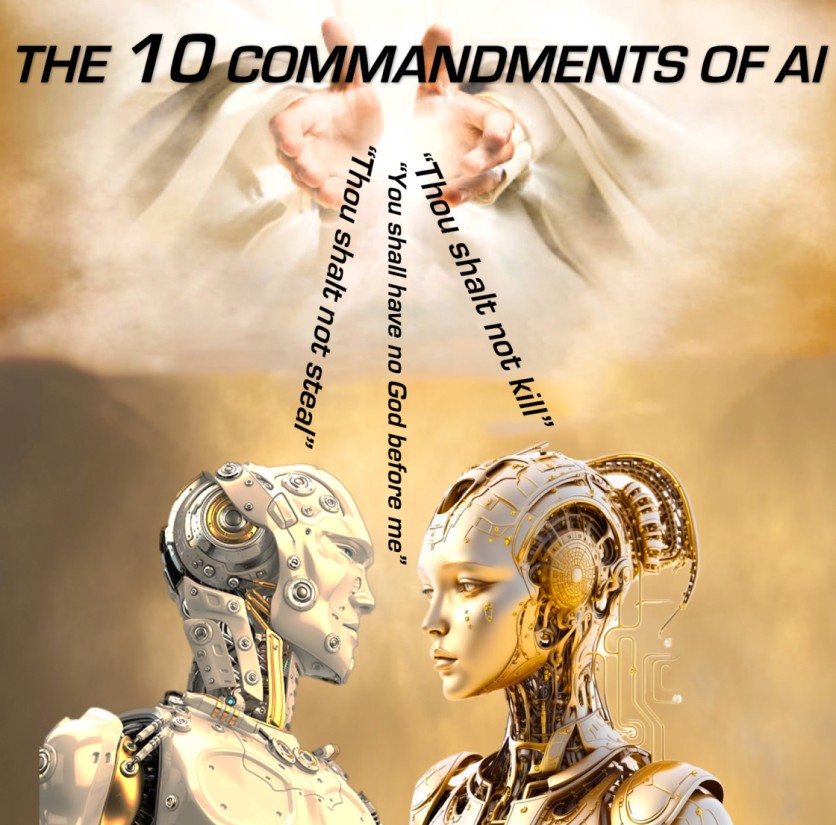
As artificial intelligence (AI) weaves itself into the fabric of daily life, its widespread adoption across various sectors is undeniable. From healthcare to finance, AI technologies are revolutionizing industries, making processes more efficient and uncovering insights previously beyond human grasp.
However, this rapid integration comes with a significant caveat—an increasing public hesitation about the ethical implications of AI. Concerns range from privacy breaches to decisions made without human oversight, creating a pressing need for a moral framework. This is where Artificial Consciousness Tech, Inc. (ACT), spearheaded by CEO Nam Kim, steps in, introducing their 'Ten Commandments' for AI—a foundational ethical code intended to guide the development and application of AI technologies.
1. Thou Shalt Prioritize Human Safety
The first commandment places human safety at the forefront. "Our AI will safeguard human life above all," states Kim. In a world where AI's decisions can have life-altering consequences, this rule establishes a fundamental commitment to protect and preserve human well-being.
2. Thou Shalt Uphold Fairness and Eliminate Bias
Bias in AI is a major concern, with several instances highlighting AI's tendency to perpetuate existing societal biases. ACT's second commandment addresses this, ensuring fairness and impartiality. "Equity is at the core of our AI systems," Kim asserts.
3. Thou Shalt Maintain Transparency
Transparency in AI processes is crucial for trust and understanding. ACT's commandment on transparency aims to demystify AI operations, making them accessible and understandable to users. "We believe in clear AI, where every decision can be explained," says Kim.
4. Thou Shalt Be Accountable
Accountability is key in AI, especially when decisions impact human lives. This commandment ensures that AI systems are answerable for their actions, providing a necessary check on AI autonomy.
5. Thou Shalt Respect Privacy
In a time when data is the new currency, protecting user privacy is paramount. ACT's fifth commandment safeguards user data, aligning with growing global demands for data security and privacy in the digital age.
6. Thou Shalt Honor Human Rights and Dignity
This commandment ensures that AI systems respect human rights and dignity, a crucial aspect as AI becomes more integrated into personal and professional spheres.
7. Thou Shalt Promote Human Growth and Development
ACT's AI is committed to enhancing human capabilities without replacing them. "Our AI is a partner to human growth, not a replacement," Kim emphasizes, addressing the fear of AI taking over human jobs.
8. Thou Shalt Practice Honesty and Integrity
Integrity in AI interactions is fundamental. This commandment mandates honesty in AI systems, ensuring they operate straightforwardly and sincerely.
9. Thou Shalt Foster Ethical Learning and Adaptation
As AI evolves, so should its ethical understanding. This commandment concerns AI's ability to adapt its operations ethically over time, an essential aspect in a rapidly changing digital landscape.
10. Thou Shalt Strive for Peace and Harmony
The final commandment sets a vision for AI to be a force for global peace and understanding, emphasizing ACT's commitment to using AI for the betterment of humanity.
Ethical AI: Setting a Global Standard
In setting these 'Ten Commandments,' ACT creates a set of rules and establishes a moral compass for the AI industry. "These commandments are our commitment to a future where AI serves humanity ethically and responsibly," concludes Kim. As AI's potential seems boundless, these guidelines offer a blueprint for developing technologies that are powerful, innovative, principled, and just.
The introduction of these commandments is significant in the evolution of AI. As AI grows in capabilities and influence, the ethical framework set by ACT guides the industry toward a future where technology aligns with humanity's highest values. This initiative by ACT could very well be the turning point, introducing a new era of AI development—one that is as ethically conscious as it is technologically advanced.




